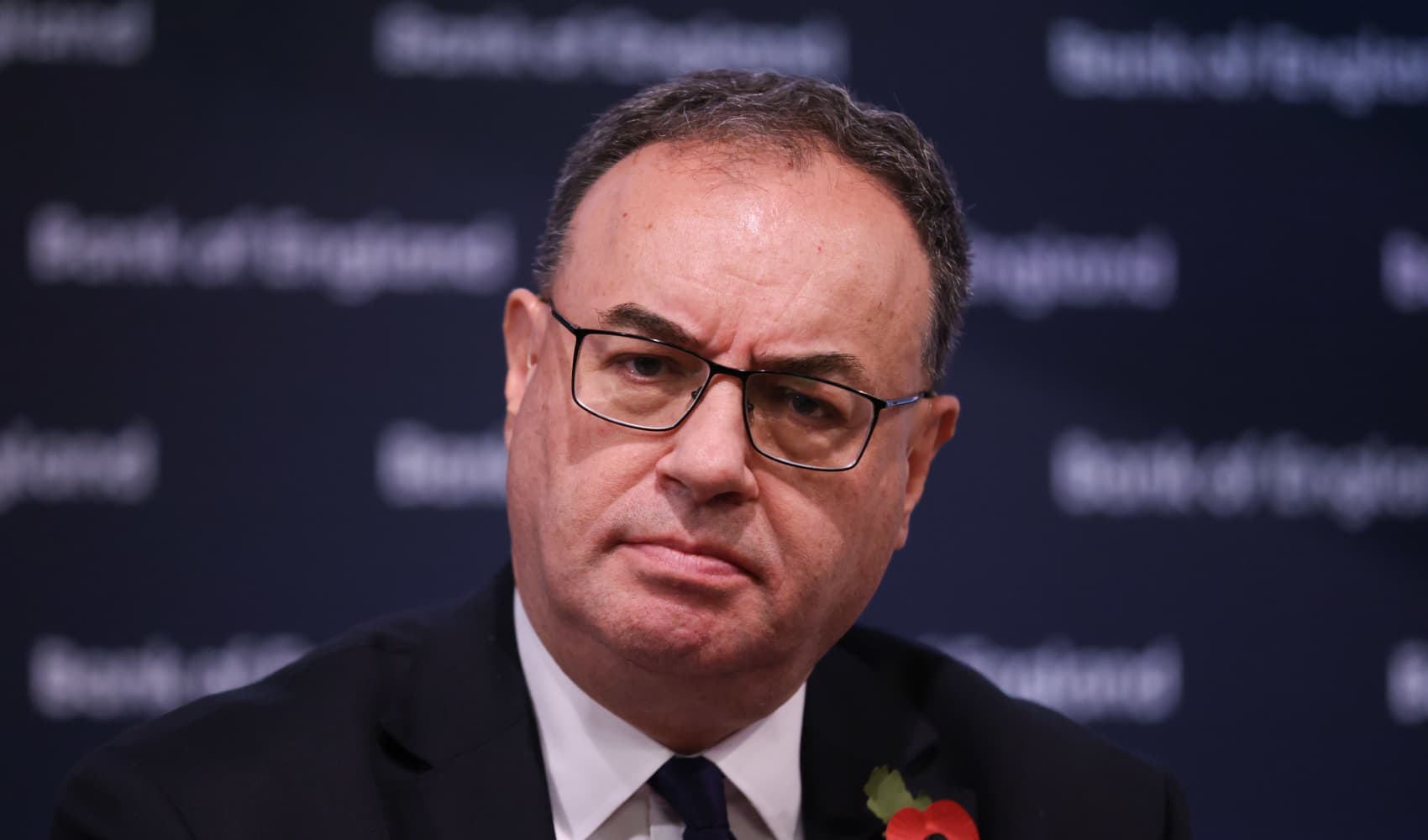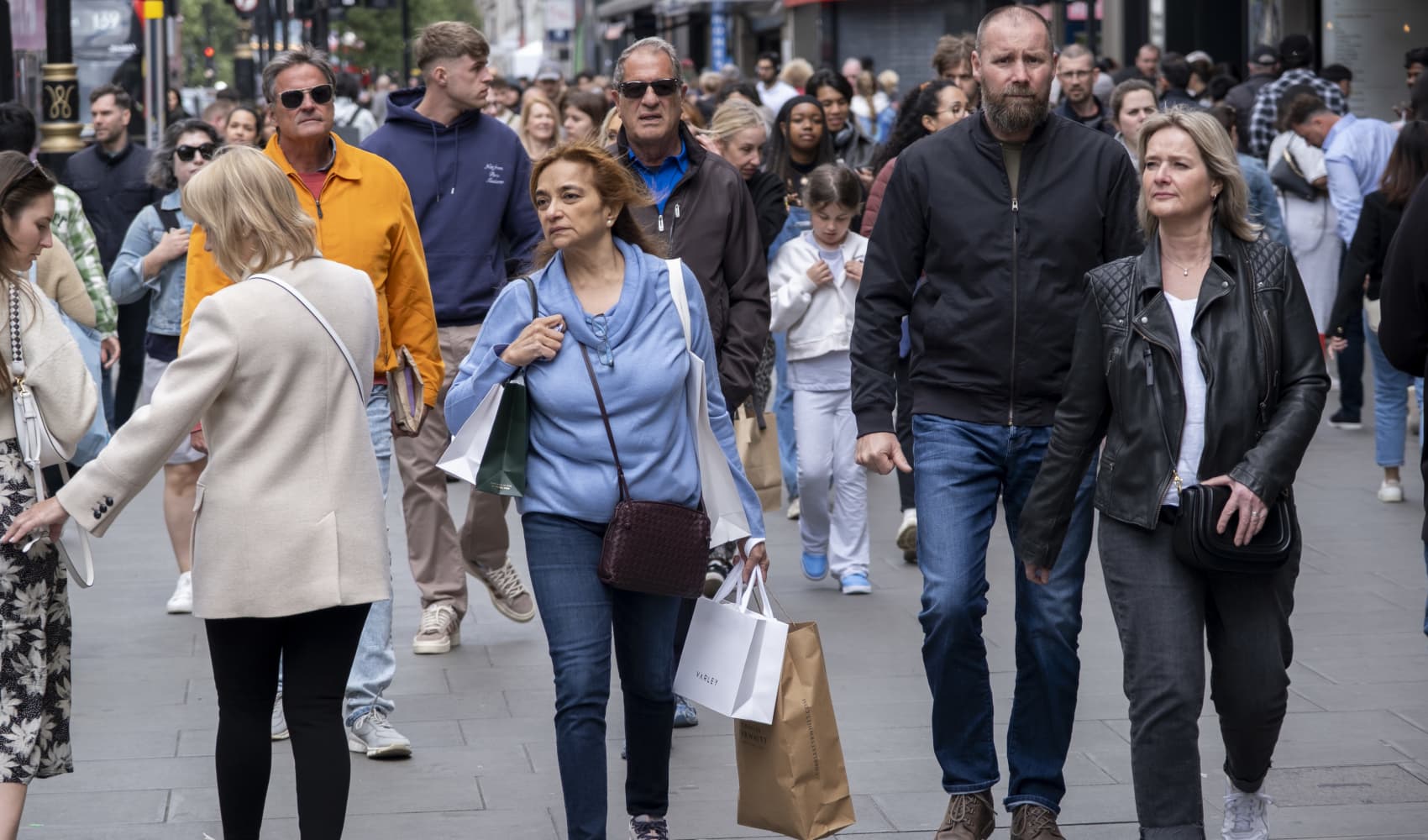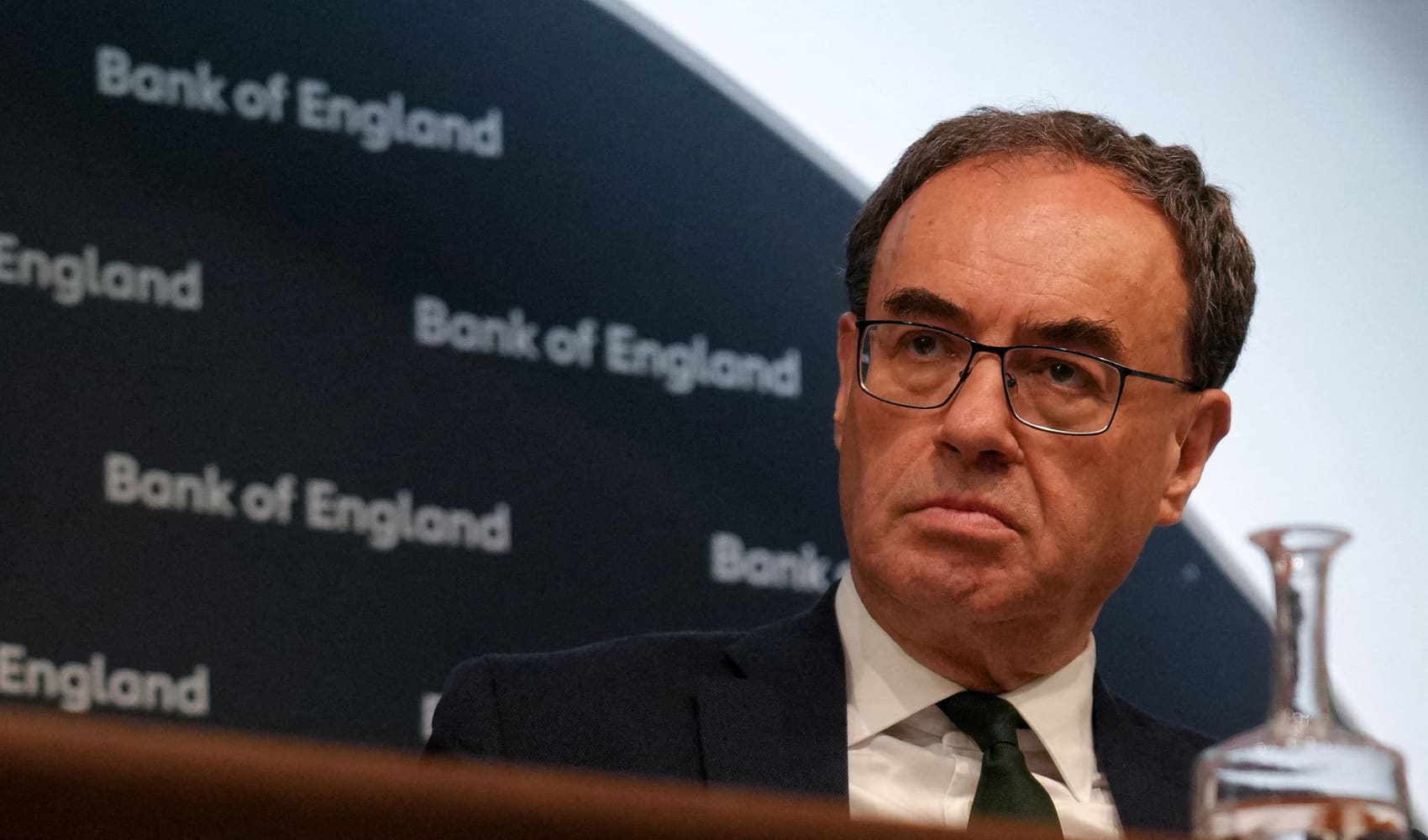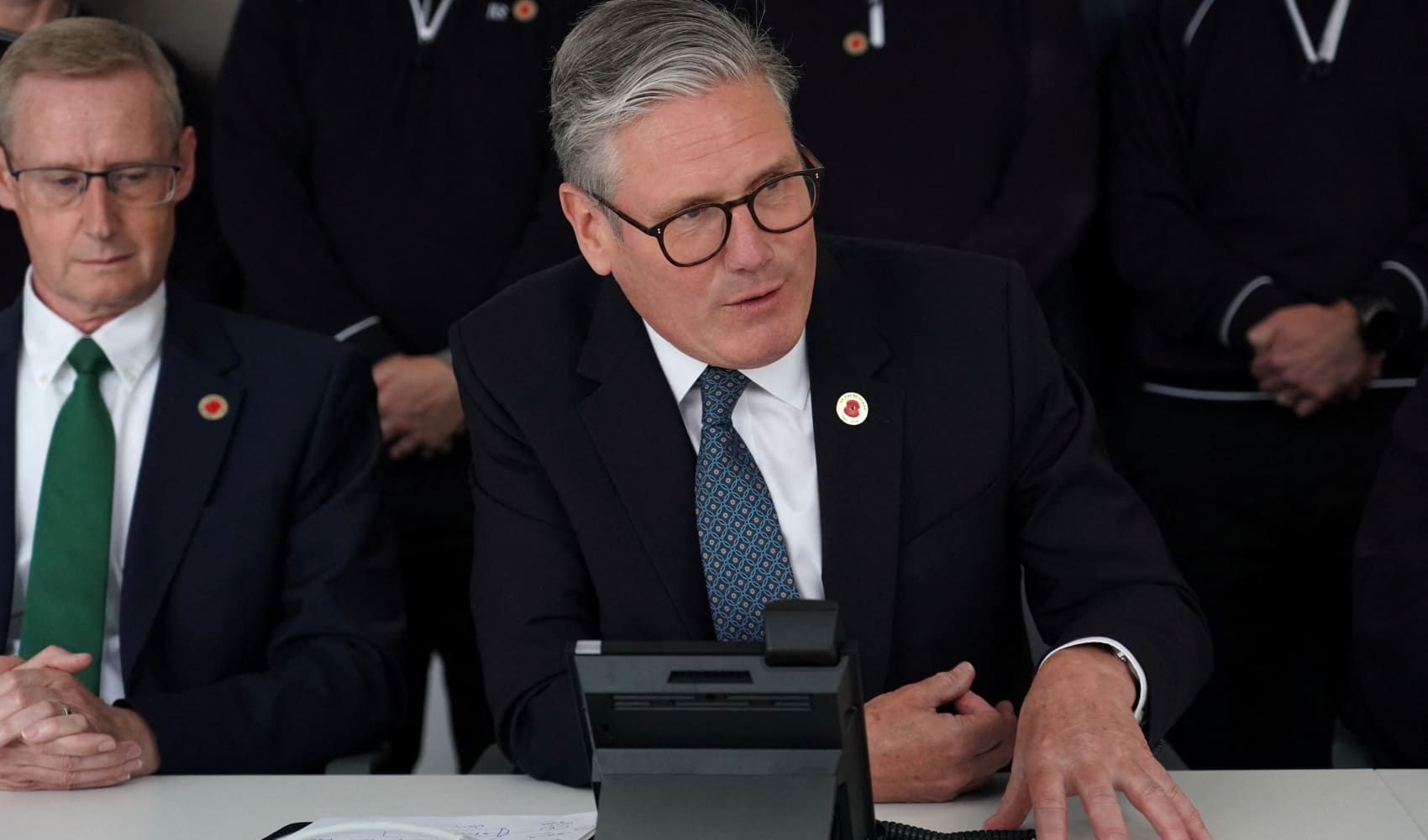Tariff Shock? Bank of England's Plan to Avoid UK Recession
Tariff Tensions: Bank of England Navigates Growth Shock, Downplays Recession Fears
Introduction: Decoding Bailey's Balancing Act
Ah, the economy! It's a bit like the weather, isn't it? Always changing, often unpredictable, and perpetually the subject of conversation. Right now, all eyes are on the Bank of England, specifically its governor, Andrew Bailey. He's walking a tightrope, trying to balance the potential fallout from U.S. tariffs with the more optimistic (though still cautious) view of the UK's economic health. But what exactly is he worried about, and why is he seemingly less concerned about a recession than some might expect? Let's dive in and unpack this financial puzzle.
The Tariff Threat: A Global Trade Tumble?
So, what's this "growth shock" that Bailey is so focused on? It all boils down to tariffs. Specifically, tariffs imposed by the U.S. on various goods. Think of tariffs like a tax on imported goods. They make those goods more expensive, which can lead to a decrease in demand. Now, if global trade starts to slow down due to these tariffs, that can have a ripple effect, impacting economies worldwide, including the UK's.
The Domino Effect: How Tariffs Can Hurt
If the U.S., a major global player, starts throwing up trade barriers, other countries might follow suit. This can lead to a trade war, which nobody really wins. Less trade means less economic activity, which can ultimately translate to slower growth, or even contraction. It’s like choking off the oxygen supply to the global economy.
May 8th: A Date with Monetary Policy Destiny
Mark your calendars! May 8th is the date of the Bank of England's next monetary policy meeting. This is where the big decisions are made regarding interest rates and other measures to manage the economy. Bailey mentioned that they'll be considering "arguments on both sides." What does that mean?
Arguments on Both Sides: The Inflation-Growth Tug-of-War
Essentially, the Bank of England needs to weigh the potential impact of tariffs (and the resulting slowdown in global trade) on growth against the persistent issue of inflation. Are tariffs going to exacerbate inflation or stifle growth even further? It's a complex equation with no easy answers.
Recession Reality Check: Bailey's Less Pessimistic Outlook
While acknowledging economic uncertainty, Bailey explicitly stated that he doesn't see the UK as being close to a recession "at present." This is a significant statement, considering the doom and gloom that often permeates economic discussions. But what makes him so relatively optimistic?
"At Present": A Key Caveat
It's important to note the phrase "at present." This isn't a blanket guarantee that a recession is off the table forever. It simply means that, based on current data and projections, the Bank of England doesn't believe the UK economy is teetering on the brink of collapse right now. Things can change quickly, of course, so constant monitoring is crucial.
Uncertainty's Ugly Head: Weighing on Confidence
Despite his downplaying of immediate recession risks, Bailey did concede that economic uncertainty is weighing on both business and consumer confidence. And that's a big deal. Why?
The Confidence Conundrum: Spending and Investment
When businesses and consumers are uncertain about the future, they tend to hold back on spending and investment. Businesses might delay expansion plans, and consumers might postpone major purchases. This reluctance to spend can create a self-fulfilling prophecy, slowing down economic activity even further. Confidence is the lifeblood of a healthy economy.
Interest Rates: The Bank of England's Big Gun
The Bank of England's main tool for managing the economy is interest rates. They can raise rates to combat inflation or lower them to stimulate growth. But what's the right move in the current environment?
To Hike or to Hold: The Rate Dilemma
With inflation still a concern, there's pressure on the Bank of England to raise interest rates. However, raising rates too aggressively could further dampen economic growth, especially if global trade is already slowing down due to tariffs. It's a delicate balancing act. Do they prioritise taming inflation or supporting growth?
Supply Constraints: A Persistent Inflation Driver
Bailey also mentioned "domestic supply constraints" as a factor impacting inflation. What are these constraints, and how do they contribute to rising prices?
Bottlenecks and Shortages: The Supply Chain Saga
Supply constraints refer to disruptions in the supply chain, leading to shortages of goods and services. These shortages can drive up prices, contributing to inflation. Think about the shortages of certain goods we saw during the pandemic. That's a prime example of supply constraints in action.
The Global Context: A World Interconnected
It's crucial to remember that the UK economy doesn't exist in a vacuum. It's deeply interconnected with the global economy. What happens in the U.S., China, and Europe can have a significant impact on the UK.
A Web of Trade: Interdependence and Vulnerability
The UK relies heavily on trade with other countries. If global trade slows down, that will inevitably impact UK exports and imports, potentially hindering economic growth. It's like a spider web – if one strand breaks, the whole structure is weakened.
Beyond Tariffs: Other Economic Headwinds
While tariffs are a major concern, they're not the only challenge facing the UK economy. Other factors, such as the ongoing impact of Brexit, geopolitical tensions, and fluctuating energy prices, also play a role.
A Perfect Storm: Multiple Challenges Converging
The UK economy is facing a confluence of challenges, making it difficult to predict the future with certainty. Tariffs are just one piece of the puzzle, albeit a significant one.
The Consumer's Perspective: Feeling the Pinch?
Ultimately, the impact of these economic forces will be felt by consumers. Will prices rise? Will jobs be affected? Will living standards decline? These are the questions on people's minds.
Household Budgets: Squeezed from All Sides
Many households are already struggling with the rising cost of living. If tariffs lead to higher prices, that will only exacerbate the problem, putting further strain on household budgets. It's a real-world impact that people feel every day.
Business Sentiment: Adapting to the New Reality
Businesses are also closely watching the economic situation. They need to make decisions about investment, hiring, and pricing, all of which are influenced by their expectations for the future.
Planning for Uncertainty: A Business Imperative
Businesses are having to navigate a highly uncertain environment. They need to be agile and adaptable, prepared to adjust their strategies as the economic landscape evolves. This requires careful planning and risk management.
The Political Dimension: Policy Responses
Economic challenges often have political ramifications. Governments need to respond to these challenges with appropriate policies to mitigate the negative impacts and support economic growth.
Navigating the Storm: Government Action Required
The government has a crucial role to play in navigating these economic challenges. It needs to work with the Bank of England and other stakeholders to develop policies that promote sustainable growth and protect vulnerable households. That includes trade negotiations and domestic policy adjustments.
Looking Ahead: A Cautiously Optimistic Outlook?
So, what's the overall takeaway? While the Bank of England is clearly concerned about the potential impact of tariffs, it's not necessarily predicting an imminent recession. However, significant uncertainty remains, and constant monitoring is essential. It's a cautiously optimistic outlook, tempered by the recognition of real and present dangers.
Conclusion: Key Takeaways from Bailey's Stance
In summary, Andrew Bailey's statements highlight a careful balancing act. He's acknowledging the "growth shock" potential from U.S. tariffs and a global trade slowdown, emphasizing the need for careful consideration at the upcoming monetary policy meeting. Simultaneously, he's downplaying immediate recession risks, though conceding that economic uncertainty is weighing on confidence. The Bank of England faces a complex challenge: managing inflation while safeguarding growth in a volatile global environment. Ultimately, the future remains uncertain, requiring vigilance and adaptable policy responses. The key is preparedness and prudent decision-making.
Frequently Asked Questions
- What exactly are tariffs and how do they affect the economy? Tariffs are taxes imposed on imported goods, making them more expensive. This can reduce demand for those goods, slow down trade, and potentially lead to slower economic growth. Think of it as adding a layer of cost to anything that gets imported.
- Why is the Bank of England so focused on U.S. tariffs specifically? The U.S. is one of the world's largest economies and a major trading partner for many countries, including the UK. U.S. trade policy has a significant impact on the global economy, making U.S. tariffs a key concern for the Bank of England.
- If the UK isn't close to a recession, why is everyone so worried? While the Bank of England doesn't see an immediate recession, the economy is still facing significant challenges, including high inflation, supply chain disruptions, and geopolitical tensions. These factors create uncertainty and can weigh on economic growth. Plus, predicting the future is never an exact science!
- What can the average person do to prepare for potential economic uncertainty? There are several things individuals can do, such as building an emergency fund, paying down debt, and diversifying their investments. Financial planning and responsible budgeting are always good practices.
- What's the difference between inflation and a recession? Inflation is a sustained increase in the general price level of goods and services in an economy. A recession, on the other hand, is a significant decline in economic activity spread across the economy, lasting more than a few months, normally visible in real GDP, real income, employment, industrial production, and wholesale-retail sales. They are distinct economic phenomena, but they can often be interconnected.



